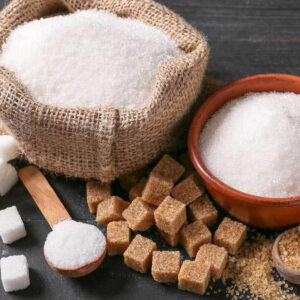Some people prefer beet sugar vs cane sugar for its believed health advantages and purity.
Some people prefer beet sugar vs cane sugar for its believed health advantages and purity.
Blog Article
Discover the Uses and Conveniences of Beet Sugar Vs Cane Sugar in Your Daily Diet Plan
Checking out the unique qualities of beet and cane sugar discloses greater than just their sweetening capacities; it highlights their one-of-a-kind effect on wellness and culinary arts. Beet sugar, understood for its refined taste, is frequently favored in fragile desserts, whereas cane sugar, with its tip of molasses, adds splendor to durable dishes. Each type holds its very own dietary profile and glycemic implications, inviting a much deeper understanding of their roles in a balanced diet regimen and sustainable consumption techniques.
Beginning and Production Procedures of Beet and Cane Sugar

The distinct environments and dirt kinds needed for expanding sugar beetroots and sugarcane contribute to differences in their growing techniques and geographical distribution, influencing the economics and sustainability of their manufacturing. beet sugar vs cane sugar.
Nutritional Comparison In Between Beet Sugar and Cane Sugar
In spite of stemming from different plants, beet sugar and cane sugar are nutritionally extremely similar, both mainly being composed of sucrose. Each provides about 4 calories per gram, translating to roughly 16 calories per teaspoon. Structurally, both sugars are composed of approximately 99.95% sucrose, with minimal amounts of other substances like wetness and trace minerals, which do not dramatically modify their dietary accounts.

Inevitably, when selecting in between beet sugar and cane sugar based upon nutritional material alone, both offer identical advantages and drawbacks as they are basically forms of the same particle-- sucrose, offering quick power without various other nutrients.
Influence on Health And Wellness: Glycemic Index and Caloric Material
Exploring better into the effects of beet sugar and cane sugar on health, it is very important to consider their glycemic index and calorie content. Both sugars are identified as sucrose, which includes sugar and fructose. This composition leads them to have a similar effect on blood sugar levels. The glycemic index (GI) of both beet and cane sugar is around 65, categorizing them as high-GI foods, which can create quick spikes in blood sugar levels. This is an important aspect for people handling diabetic issues or those trying to maintain their power degrees throughout the day.
Each sort of sugar has around 4 calories per gram, making their calorie content equivalent. For those you can try these out keeping track of calorie intake, especially when handling weight or metabolic health problems, comprehending this equivalence is crucial (beet sugar vs cane sugar). Nonetheless, excessive usage of any high-calorie, high-GI food can add to health and wellness problems such as obesity, heart problem, and insulin resistance.
Environmental and Economic Considerations of Sugar Production
Beyond health impacts, the manufacturing of beet and cane sugar additionally elevates substantial environmental and economic concerns. Sugar beet farming often tends to need cooler climates and has a lower geographical impact contrasted to sugar cane, which prospers in tropical regions.
Furthermore, making use of chemicals and plant foods in both beet and cane sugar farming can lead to soil degradation and contamination, additional influencing biodiversity and neighborhood water bodies (beet sugar vs cane sugar). The choice between cultivating sugar beet or cane frequently rests on local ecological problems and economic variables, making the sustainability of sugar production a complex concern
Culinary Applications and Taste Distinctions
While the ecological and economic aspects of sugar production are without a doubt considerable, the selection in between beet and cane sugar also influences culinary applications and taste accounts. Beet sugar, obtained from the sugar beet plant, is understood for its extremely neutral taste.
Cane click here to find out more sugar, drawn out from sugarcane, usually maintains molasses traces, which pass on a distinct splendor and depth. This minor molasses Find Out More taste boosts the complexity of baked goods, sauces, and marinades. It is specifically preferred in items where a sugar touch is wanted, such as in brownies or gingerbread. Additionally, the slight variant in moisture material in between beet and cane sugar can impact the appearance and consistency of meals, making cane sugar a recommended choice for particular dishes that benefit from its special residential or commercial properties.

Final Thought
Finally, both beet and cane sugar have unique beginnings and production procedures, using comparable dietary accounts with mild distinctions in sodium web content and taste. While their effect on health and wellness, specifically concerning glycemic index and calories, is similar, the choice in between them typically comes down to ecological, economic factors, and certain cooking needs. Comprehending these aspects can guide consumers in making informed choices that align with their health and wellness goals and taste choices.
Report this page